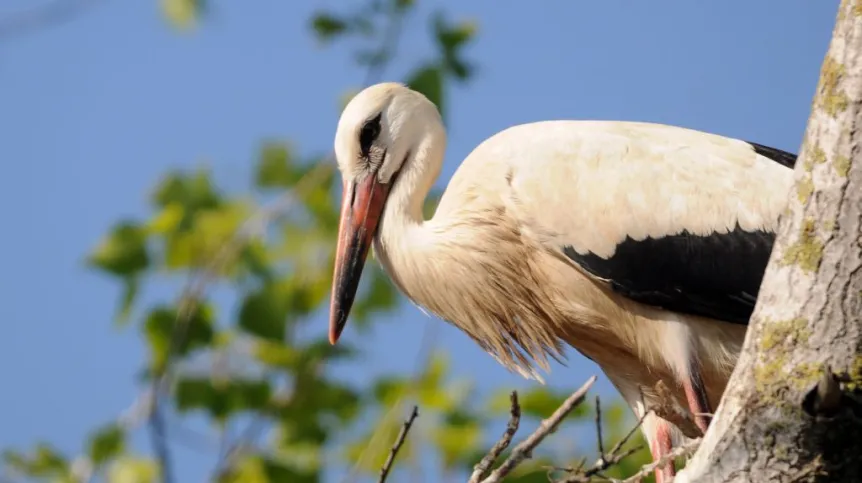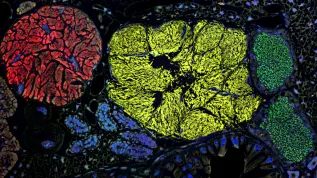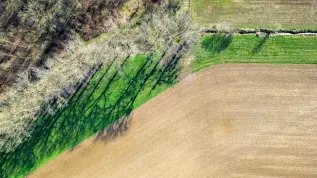
Ornithologists ringed 20 young storks in 11 nests in the village Kłopot in Lubuskie. This village is the place of permanent study of these birds, and seat of the only White Stork Museum in Poland.
According to naturalists, this year will bring a further decline in the number of young storks. A similar trend is observed across the country - told PAP Krzysztof Gajda of the White Stork Museum.
Last year, 22 pairs of storks were breeding in Kłopot. They successfully raised 38 young in 17 nests.
Monitoring carried out earlier this week, combined with ringing some of young birds, showed that currently there are 31 young in 17 nests in the village. In none of the nests there were more than three young. Stork pairs are only in 20 of the 33 nests, and some of them have already lost their broods.
"All this indicates that this year will not be good for the storks. Not only in Kłopot and Lubuskie, but throughout the country. Similar, smaller number of young have been observed in Wielkopolska, Mazovia and Lublin region. The reasons for the low number of young birds include cold and dry May, less eggs, low groundwater level and further development of monoculture crops, mainly rapeseed and corn, that replace meadows" - Gajda told PAP.
He added that the only comforting information resulting from recent observations of storks in Kłopot is the fact that no objects harmful for storks have been found in the nests - such objects include strings, fishing lines or bags.
"This is a small consolation, given that the number of young birds in Kłopot may be even lower in a few weeks, because the weather forecast is not promising. The last young birds in the village hatched only a few days ago. And that does not bode best for the chicks, the total number of young birds departing for Africa may drop significantly below 30. It will be the lowest number in many years" - said Gajda.
Kłopot is called stork village, because it has 33 stork nests. It is an ideal place for studying the life and habits of these birds. Precisely for this reason, in 2003 the White Stork Museum was founded Kłopot at the initiative of the District Board of the Nature Protection League in Zielona Góra.
Kłopot is located in the commune of Cybinka in the Krzesin Landscape Park that covers an area that includes wet meadows and pastures in the valley of the Oder and Neisse, and parts of the Oder River willow and willow-poplar riparian forests.
PAP - Science and Scholarship in Poland
mmd/ par/ mrt/
tr. RL













